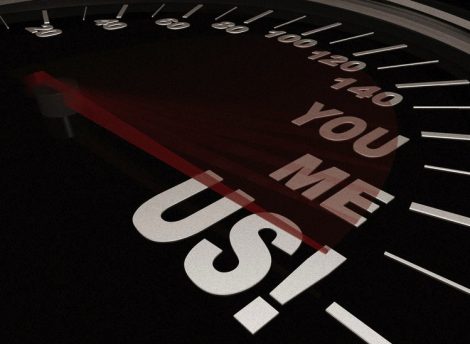We are (not) more intelligent than me

Voices are being raised which consider the rising complexity in organizations to be the next key challenge for decision makers. Managers reach personal limits when forced to make decisions in vast situations, while traditional methods of decision-making are at the point of expiring. Various management guides and academic publications offer a way out of this “trap of complexity”: the metaphor of the intelligent swarm or the concept of collective intelligence.
When illustrating the power of collective intelligence, the research mostly cited is the one of sociologist Kate Gordon. In the 1920s, she conducted a study in which 200 participants were asked to sort different objects according to their weight. Surprisingly, the average of all estimates almost hit the objects’ original weights to the point. Only five participants made individual estimates that were better than the groups’ results (Gordon, 1921). The conclusion seems obvious: Group judgment is better than individual judgment – We are more intelligent than me.
But can we apply these findings to situations where not just trivial estimations of weight but complex decisions are demanded? In his groundbreaking book “The Logic of Failure – Recognizing and Avoiding Error in Complex Situations”, Dietrich Dörner, Leibnitz-Award-Winner and psychologist, presents the cognitive mistakes groups and collectives make in complex, interconnected and highly dynamic situations (Dörner, 2011).
His publication dampens the optimism of collective intelligence’s supporters. In different experiments, Dörner works with simulations to put the participants in different situations, for example in the role of a development aid worker in the fictive African country Tanaland. They are then confronted with complex situations demanding fast decisions. The studies reveal that collective decisions are worse than the ones made by individuals. According to Dörner, reasons for these results can be found in group dynamics. When looking at the organizational context, it is well known that managers are likely to hire employees who are loyal to them and to the group and who do not question the existing rules and regulations.
In this kind of group, independent thoughts and criticism are not welcome. As a result, erroneous trends and developments are ignored, even if they are noticed by everyone involved. These group-dynamic based biases lead to a decline in the quality of collective decisions, when compared to the decisions of individuals. As a conclusion we can state: “We” are NOT more intelligent than “me”.
Is collective intelligence therefore just a myth or does it really hold the potential to solve the pressing (management) questions of our time? A general answer is hard to find. Research has proven that under certain conditions a group is indeed more intelligent than an individual. Scientists and practitioners are currently facing the challenge of understanding those conditions. Not every answer has been found, we are rather at the point of beginning to ask the right questions. Time will tell in which contexts collective intelligence bears potential and how we can profit from it.
Sources

